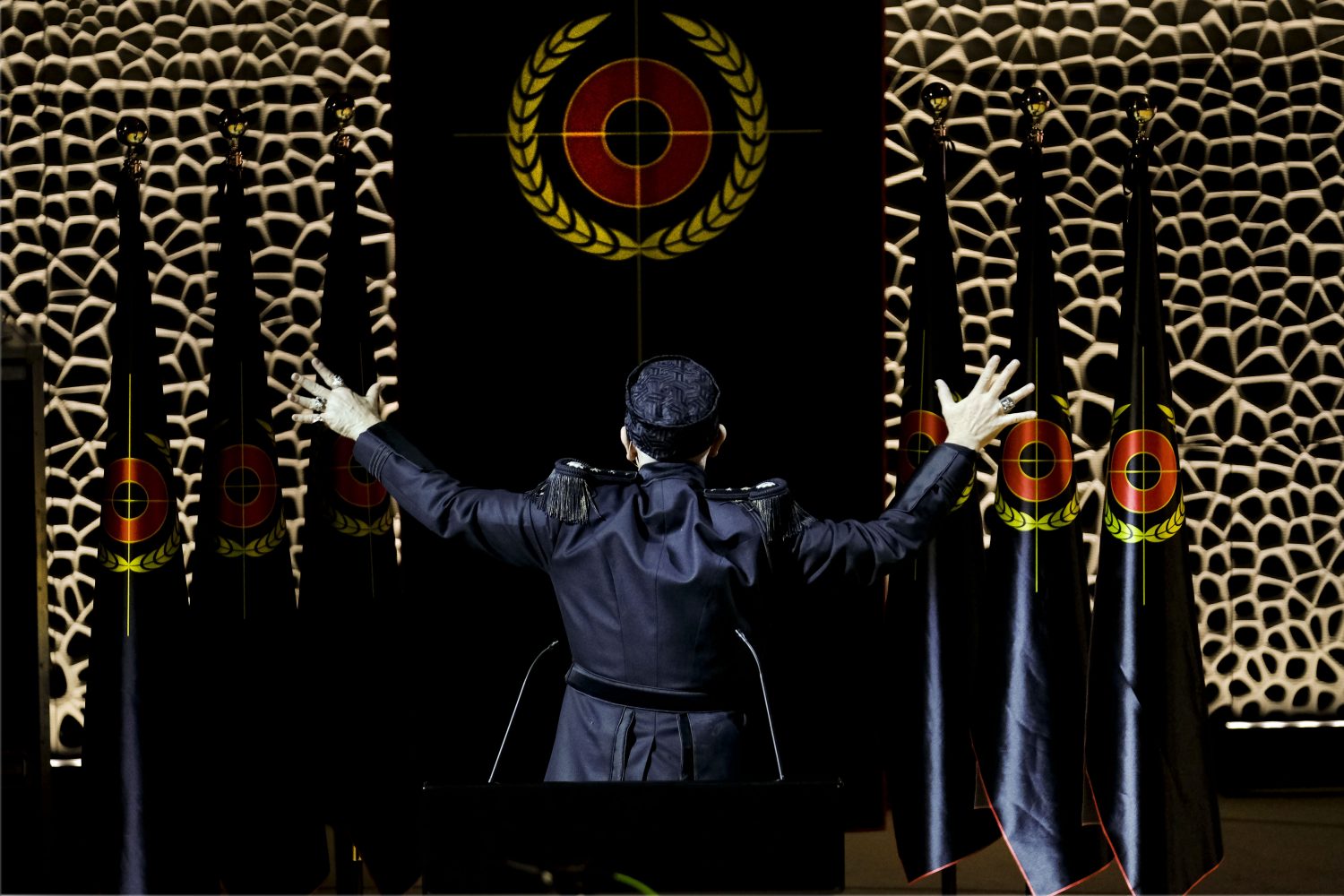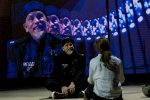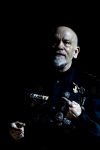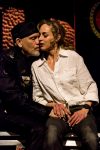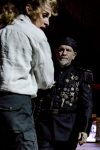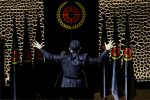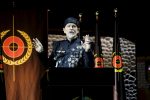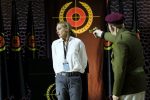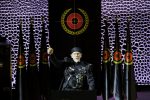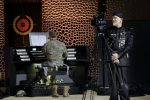The final speech of a resigning dictator,
for organ, electronics one actor and one singer.
Back on Tour in 2020 | Dates to be announced
The whole world is looking for Dictator Satur Diman Cha, Head of State of the Republic of Circassia. After losing his power, the notorious Dictator has gone underground. The first group of soldiers of the liberation army forces, accompanied by the journalist Caroline Thomas, breaks into his palace and enters a huge subterranean concert hall.
There, they find a massive pipe-organ and inspired by the presence of the instrument, the field-chaplain of the troops, Reverend Lee Dunklewood, starts playing the fascinating instrument. During his performance, the soldiers are overpowered by the Dictator and only the Reverend and Caroline survive. The two find themselves as Satur’s hostages, understanding that the situation is dead serious. He threatens to kill them if they do not obey his every wish and demands of the Reverend to continue playing for him on the organ. He does not hide his unpredictability, leaving the Reverend and Caroline fearing and fighting for their lives.
Caroline tries to survive by keeping Satur interested in her conversation. Taking a big risk, she bravely asks the Dictator for an exclusive interview. Satur, seemingly impressed by her challenging attitude, agrees on giving her what she wants.
The Dictator commences his last public address accompanied by Reverend Lee’s organ music. His political speech maps out the future he predicts for the rich and privileged people on earth, producing a scenario of borders, fences and walls. Challenged by Caroline’s questions, Satur elaborates on power and its merits and downsides. He shows an understanding of the sacrifices he had to make in order to become the absolute Dictator. During his speech the sound of the Reverend’s organ becomes larger-than-life.
When the official part of the speech is over, Caroline becomes even more daring. She challenges him by trying to demask the man of power, asking him personal questions to get a look behind his facade. Seeing through her scheme, Satur decides to play along, more and more appreciating their growing mutual intimacy …
© Jann Wilken
[download all pictures]
© Jann Wilken
| 08/03/17 | Hamburg | Elbphilharmonie Hamburg | Germany |
| Time: 7:30pm. | |||
| 09/03/17 | Hamburg | Elbphilharmonie Hamburg | Germany |
| Time: 7:30pm. | |||
| 10/03/17 | Hamburg | Elbphilharmonie Hamburg | Germany |
| Time: 7:30pm. | |||
| 12/03/17 | Vienna | Wiener Konzerthaus | Austria |
| Time: 7:30pm. | |||
| 13/03/17 | Vienna | Wiener Konzerthaus | Austria |
| Time: 7:30pm. | |||
| 15/03/17 | Amsterdam | Concertgebouw Amsterdam | Netherlands |
| Time: 9:00pm. | |||
| 18/03/17 | Groningen | De Oosterpoort | Netherlands |
| Time: 8:15pm. | |||
| 21/03/17 | Birmingham | Symphony Hall Birmingham | United Kingdom |
| Time: 7:30pm. | |||
| 23/03/17 | London | Barbican Centre – Union Chapel | United Kingdom |
| Time: 7:30pm. | |||
| 24/03/17 | London | Barbican Centre – Union Chapel | United Kingdom |
| Time: 7:30pm. | |||
| 25/03/17 | London | Barbican Centre – Union Chapel | United Kingdom |
| Time: 7:30pm. | |||
| 28/03/17 | Luxembourg | Philharmonie Luxembourg | Luxembourg |
| Time: 8:00pm. | |||
| 02/04/17 | Moscow | Moscow House of Music – Дом музыки | Russian Federation |
| Time: 8:00pm. | |||
| 04/04/17 | Budapest | Müpa Budapest | Hungary |
| Time: 7:30pm. | |||
| 08/04/17 | Munich | Hochschule für Musik & Theater München | Germany |
| Time: 8:00pm. | |||
| 09/04/17 | Munich | Hochschule für Musik & Theater München | Germany |
Artistic Team
John Malkovich – Satur Diman Cha
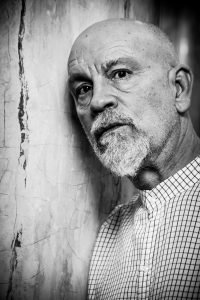 born in Christopher, Illinois, is an acclaimed actor, producer and director. He earned an Emmy Award for his performance in “Death of a Salesman”. He has worked with many Hollywood and independent filmmakers and has appeared in numerous feature films, such as “In the Line of Fire”, “The Killing Fields”, “Of Mice and Men”, “Empire of the Sun”, “Shadow of the Vampire”, “Burn after Reading”. In the surreal comedy “Being John Malkovich” he played ‘himself’. For his big-screen debut in “Places in the Heart” he received an Academy Award Nomination for Best Supporting Actor. John Malkovich went on to produce and direct his own feature films such as “The Dancer Upstairs”, starring Javier Bardem.
born in Christopher, Illinois, is an acclaimed actor, producer and director. He earned an Emmy Award for his performance in “Death of a Salesman”. He has worked with many Hollywood and independent filmmakers and has appeared in numerous feature films, such as “In the Line of Fire”, “The Killing Fields”, “Of Mice and Men”, “Empire of the Sun”, “Shadow of the Vampire”, “Burn after Reading”. In the surreal comedy “Being John Malkovich” he played ‘himself’. For his big-screen debut in “Places in the Heart” he received an Academy Award Nomination for Best Supporting Actor. John Malkovich went on to produce and direct his own feature films such as “The Dancer Upstairs”, starring Javier Bardem.
Together with photographer and director Sandro Miller he recreated a series of iconic photographs impersonating the original subjects. He wrote and starred in “100 Years: The Movie You Will Never See”, a film directed by Robert Rodriguez, which will be released on 18 November 2115. The 100-year time span is inspired by the amount of time needed to produce a bottle of Louis XIII Cognac. John Malkovich launched his own fashion line in the early 2000s, which has released several collections. Recently he received the Milton Shulman Award for Best Director for “Good Canary”, which he directed for the Rose Theatre Kingston. Soon “Wilde Wedding” will be released, reuniting John Malkovich and Glenn Close after their successful collaboration in “Dangerous Liaisons”, and also starring Minnie Driver and Patrick Steward.
He collaborated with Michael Sturminger and Martin Haselböck in “The Infernal Comedy” and “The Giacomo Variations” and played more than 150 performances all over the world. Following the success of “The Giacomo Variations” he starred in “Casanova Variations”, a feature film based on the theatre production.
Karen S Gregan – Caroline Thomas
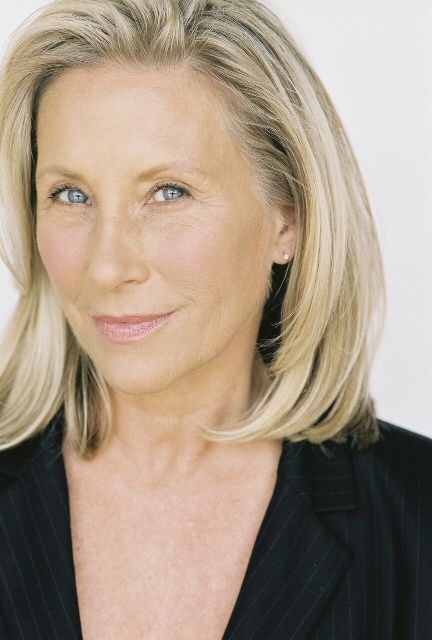 Karen spent years working in New York City with the Circle Repertory Company, where she performed in The Diviners (and Asian tour), The Rimers of Eldrich (directed by Lanford Wilson) and Balm In Gilead, winner of the Drama Desk Award for Best Ensemble, directed by John Malkovich. She was a founding member of the Barrow Group, developing many world premier works. Other favorite performances include The Goat, nominated for an ariZoni award, The Rainmaker (directed by Paul Sorvino), Trust, and The Great Grandson of Jedediah Kohler. Currently living in Los Angeles, Karen was a founding member of Circle Rep West, and loved performing in Rick Cleveland’s Home Grown, and Miles and Niki, directed by Peter Berg. Karen has also worked with the Ojai Playwrights Conference, developing and performing new works.
Karen spent years working in New York City with the Circle Repertory Company, where she performed in The Diviners (and Asian tour), The Rimers of Eldrich (directed by Lanford Wilson) and Balm In Gilead, winner of the Drama Desk Award for Best Ensemble, directed by John Malkovich. She was a founding member of the Barrow Group, developing many world premier works. Other favorite performances include The Goat, nominated for an ariZoni award, The Rainmaker (directed by Paul Sorvino), Trust, and The Great Grandson of Jedediah Kohler. Currently living in Los Angeles, Karen was a founding member of Circle Rep West, and loved performing in Rick Cleveland’s Home Grown, and Miles and Niki, directed by Peter Berg. Karen has also worked with the Ojai Playwrights Conference, developing and performing new works.
Michael Sturminger – Director and Author
born in Vienna, he graduated from the University of Music and Performing Arts in Vienna. He is a versatile writer and director of opera and theatre productions as well as feature films. In the course of his colourful career as a director he has worked at renowned venues such as the Wiener Staatsoper, National Theatre Taipeh, Opernhaus Zürich and Oper Köln, amongst many others. He has written and directed “I hate Mozart”, Composer: Bernhard Lang, which had its world premiere at the Theater an der Wien. He directed “Il sogno de Scipione”, Musical Director: Robin Ticciati, which premiered at the Salzburger Festspiele and collaborated with Maestro Valery Gergiev in two productions, “Idomeneo” and “Ariadne auf Naxos”, which premiered at the Mariinsky Theatre in St. Petersburg. Since 2014 Michael Sturminger is the Artistic Director of the Sommerspiele Perchtoldsdorf, a venue south of Vienna dedicated to the staging of literary classics every summer.
Michael Sturminger was awarded the Romy for the best screenplay for his film “Casanova Variations”, starring John Malkovich, Veronica Ferres, Jonas Kaufmann, Barbara Hannigan, Anna Prohaska and Fanny Ardant. For his feature film “Hurensohn” he was awarded at the Max Ophüls Preis. His documentary “Malibran Rediscovered” follows Cecilia Bartoli paying tribute to superstar Maria Malibran. His production of “Geschichten aus dem Wiener Wald”, Composer: HK Gruber, had its world premiere at the Bregenzer Festspiele in 2015. Recently he directed “La Sonnambula” at the Münchner Gärtnerplatztheater which was awarded with an AZ Stern.
At the Salzburger Osterfestspiele 2017 Michael Sturminger will direct Salvatore Sciarrino’s “Lohengrin”. “Just Call Me God” is the third collaboration with John Malkovich and Martin Haselböck after “The Infernal Comedy” and “The Giacomo Variations”; both productions went on highly successful tours around the world.
More info
www.sturminger.com
Martin Haselböck – Music Director and Organ / Reverend Lee Dunklewood
The Austrian conductor Martin Haselböck hails from a famous family of musicians.
Following his studies in Vienna and Paris he gained an international reputation as an organ soloist, working with conductors such as Claudio Abbado, Lorin Maazel, Wolfgang Sawallisch, Riccardo Muti and many others. Leading composers including Friedrich Cerha, Ernst Krenek, Alfred Schnittke, Cristobal Halffter and Amy Gilbert have written works for Martin Haselböck.
He has released over 50 CDs as a soloist. His recordings as an organist have brought many awards, including the Deutscher Schallplattenpreis, Diapason d’Or and the Hungarian Liszt Prize. As Vienna Court Organist, Martin Haselböck’s immersion in the great repertoire of classical church music inspired him to establish the period-instrument at the Orchester Wiener Akademie.
In 2014 Martin Haselböck established an important new concert series in Vienna, RESOUND Beethoven, performing the composer’s symphonies and other orchestral works with Orchester Wiener Akademie in the historical Vienna venues of their earliest performances. The series has become an enormous success and including a recording of Beethoven’s music to Goethe’s Egmont, featuring the actor John Malkovich as narrator in a new English version by Christopher Hampton.
Martin Haselböck now enjoys a busy career as a guest conductor with the world’s leading orchestras in Europe, Asia and North and South America. He has recently made debut appearances with the Vancouver Symphony, Sydney Symphony, Malaysian Philharmonic and the Ulster Orchestra. With the American actor John Malkovich and Austrian director Michael Sturminger, Martin Haselböck developed the theatre-music drama “The Infernal Comedy”. The work has achieved extraordinary success, receiving over 100 international performances. The trio reunited for the chamber-opera play “The Giacomo Variations” in 2011. Martin Haselböck was awarded the Austrian Cross of Honour for Science and Art, and, with Orchester Wiener Akademie, the 2011 and 2012 Hungarian Liszt Prize.
More info
www.haselboeck.org
Renate Martin & Andreas Donhauser – Costume and Production Design
(donmartin supersets) studied at the TU Vienna and at the University for Applied Arts Vienna. They work nationally and internationally as costume and production designers in various disciplines – film, video, theatre and opera. They designed feature films such as “Der Knochenmann“, “Das ewige Leben“ (Director: Wolfgang Murnberger), “Contact High“ (Director: Michael Glawogger), Ulrich Seidl’s movies “Import/Export“, “Hundstage“, “Paradies 1, 2 & 3“ (2010-2012) – a film trilogy which received the Goldener Löwe at the film festival in Venice – as well as “Hurensohn“ (Director: Michael Sturminger). They designed theatre productions for Michael Sturminger, amongst others at the Opernhaus Zürich, Oper Graz, Staatsoper Vienna, as well as the Mariinsky Theatre in St. Petersburg and the Salzburger Festspiele. Productions include “I Hate Mozart“, “Le Grand Macabre“, “Tartuffe“, “Was ihr wollt“, “Warten auf Godot“, “Così fan tutte“, “La clemenza di Tito“, “Orpheus und Eurydike“, “Wiener Blut“, “Idomeneo“ and “Il sogno di Scipione”. In collaboration with Tobias Moretti as well as Philipp and Nikolaus Harnoncourt they created the productions of Mozart’s “La finta giardiniera“, “Die Schuldigkeit des ersten Gebots“ and “Idomeneo“. At the Aalto-Musiktheater Essen they designed “Die Csárdásfürstin“, “Eugen Onegin“ and “Ariadne auf Naxos“ as well as “Der Rosenkavalier“ (Director: Philipp Harnoncourt) at the Theater im Revier in Gelsenkirchen. They designed numerous music-videos as well as TV commercials. 2014 they created the set design and costumes for the production “Geschichten aus dem Wiener Wald” (Director: Michael Sturminger) which had its world premiere at the Bregenzer Festspiele and which was later performed at the Theater an der Wien. At the Stadttheater Klagenfurt they designed “Giulio Cesare in Egitto“, “Amphitryon“, “Der Gott des Gemetzels“ and “Salome“. At the Sommerspiele Perchtoldsdorf they designed 2014 “Das Käthchen von Heilbronn” (Director: Maria Happel), 2015 “Der Sturm” and 2016 “Ein Sommernachtstraum” (both directed by Michael Sturminger). They have been nominated for Best Production Design at the Austrian Film Award 2017 for “Hotel Rock´n´Roll“. “Just Call Me God” is their third collaboration with John Malkovich, Martin Haselböck and Michael Sturminger after the highly successful theatre productions “The Infernal Comedy” as well as “The Giacomo Variations”; for the resulting feature film “Casanova Variations” they received the Austrian Film Award 2016 for Best Costume Design.
Interview with the Director
A Conversation with Michael Sturminger about “Just Call Me God”
“Power is not some thing you get for free.” – Satur Diman Cha
Michael Sturminger meets me shortly before the rehearsals for “Just Call Me God” begin. He has written “Just Call Me God”, which is subtitled “a dictator’s final speech” and he is going to direct this music-theatre production at the Elbphilharmonie in March. The production will star John Malkovich in the leading role of the dictator. Martin Haselböck will this time play the concert organ, instead of conducting his symphony orchestra, as he did in their earlier projects “The Infernal Comedy” and “The Giacomo Variations”. The world premiere co-starring renowned German actress Sophie von Kessel as Caroline will take place on the 8th of March 2017 at the Elbphilharmonie in Hamburg and will be touring ten European cities.
“Have you lost your mind? Who do you think I am? Colonel Kurtz? Marlon fucking Brando? I am Satur Diman Cha!” – Satur Diman Cha
After portraying the serial killer Jack Unterweger and the notorious seducer Giacomo Casanova Sturminger thought a political leader would be the right choice for a third collaboration. The idea for “Just Call Me God” developed in the course of numerous conversations between Sturminger, Haselböck and Malkovich on political leaders and politics in general. Sturminger says “John has always held a great fascination for political history and Martin came up with the organ as the historical instrument of power.” While they toured many countries together with their previous productions, conversations revolved around political leaders like Stalin, Pol Pot, Mao Zedong or Saddam Hussein or Muammar al-Gaddafi. After a great deal of research Sturminger combined different ideas and ideologies and condensed them into the new play.
“I thought the moment might be right to tell the world what you think.” – Caroline Thomas
The central scene of the play is an unequal duel between dictator Satur Diman Cha and journalist Caroline Thomas, who finds herself taken hostage in the dictator’s deserted palace. The resigning dictator is hiding in the back of the stage of his concert-hall where Caroline and a small detachment of liberation army soldiers encounter the infamous man. She grabs her chance and arranges a final interview. The dictator agrees to give a speech as the Reverend accompanies him on the massive organ of the concert hall.
“The form of the play is different from the ones I have written so far” says Michael Sturminger. The initial idea was to develop the play from a central political speech. But the author realized that he needed a dialogue with an antagonist at eyelevel with the dictator to fuel the dramatic impact for the whole plot. “I did not want to approach this topic in a dry and educational way. Rather than focusing too much on the speech I wanted to create more tension and pressure for my protagonists. This is why they find themselves fighting for their lives.”
“I’ve read my Machiavelli.” – Satur Diman Cha
Rather than showing a parade of the great dictators, Michael Sturminger invented the fictional Satur Diman Cha: “The idea was to create a new character who ‘steals’ and copies from every possible dictator. It was imperative that Satur has great interest in other powerful leaders. He is an highly educated man who has studied them all.” Although some dictators had a greater influence on his dictator than others, Sturminger did not want to focus on a single one. He decided to draw inspiration from many historical originals, piecing together a versatile and very dangerous man.
The main character is of course specifically written for John Malkovich: “It is a great gift for the writer to know the person who will be performing the part. In a way my imagination of John playing the role does most of the writing for me. When I write for theatre or film I usually have specific actors in mind. And they will show me what the characters do. It is important to have a reliable roadmap for your journey when you start writing and it is incredibly helpful to know the people you are travelling with in the story. The better you know your characters, the more you can set them free and they will decide what is going to happen in the next moment and where the journey might lead you, while you are writing.”
In the process of writing Michael Sturminger found out that there was quite some sense of humour to his main character: “I can’t help it. Laughing about things is a possibility of overcoming them.” And he continues: “John has a wonderful sense of humour and he does great impersonations. You can experience that by looking at his projects with Sandro Miller for example. “Of course there is a very brutal side to his character, but it became obvious for me that we will also need to laugh at the comical facet of this man.” It mattered to Malkovich and Sturminger to show that“there is no black and white, political correctness will never find answers to horrifying and at the same time fascinating characters. This makes us aware that we live in grey areas all the time. Our whole political world is a grey area.” John Malkovich as Satur Diman Cha has a lot of charm and Sturminger explains that “many horrible powerful politicians have contradicting characters that make them, in a way, outstanding, otherwise they would hardly ever have gained their positions.”
“My instinct tells me that this game is rigged. No matter how well I play.” – Caroline Thomas
When asked about the dictator’s antagonist, the journalist Caroline Thomas played by Sophie von Kessel, Michael Sturminger says: “it was clear from the beginning that the dictator’s counterpart had to be a woman, and that she had to be a journalist. The media is the day-to-day challenger of the politician, so a journalist was the obvious choice for an opponent.” He describes Caroline as a very challenging role since she constantly finds herself fighting for her life. While the audience empathises with her, she has to go through all kinds of emotions from one moment to the next. “Caroline has to experience the dictator for us. She has to pass through mortal fear, terror, horror, contempt, but also empathy, sympathy and even moments of affection. Sophie von Kessel is the ideal choice for this role because she can portray this wide range of emotion very convincingly.”
“And Burt play some official music please! I don’t care what kind of music, as long as you make it sound important and official. Got the message, Burt?” – Satur Diman Cha
Speaking of the battle between the two characters, Michael Sturminger explains that the organ is integrated as a core element in the story: “Throughout history the organ has always been the instrument of the powerful. It is an instrument that can imitate a whole orchestra but only needs one single person to play it. The organ is a ‘hyper-instrument’. It represents the idea of a single instrument that can impersonate all the others. This reflects the concept of a dictator perfectly.” Martin Haselböck will be playing the organ, and it was he who has drawn attention to the fact that there are many historical photographs of dictators sitting in front of an organ. Sturminger says that he was inspired by this knowledge: “Powerful men were particularly drawn to this instrument, it always functioned as a mighty tool to impress and to scare people.”
Michael Sturminger concludes our conversation by talking about the musical compositions: “The whole atmosphere of the play as much as the sound of the organ will create a certain realistic performance style. But as the play continues electronic effects, patterns and sounds will mix into the original acoustic sound of the organ. In the second half it will dissolve and transform into a more artificial and extreme theatrical form.” Franz Danksagmüller, electronic sound artist and organist, will generate a huge set of sounds on his computer and mix it with the natural sound. Michael Sturminger is thrilled when he describes that “the impact of the huge pipe-organ will be irritatingly strong. Through the magic of Franz’ electronics, Martin’s organ will suddenly sound like an instrument that no one has ever heard before. It will become a hypertrophic, larger-than-life character.”
Michael Sturminger in conversation with Martina Theissl.
Just Call Me God – Music list
Johann Sebastian Bach: Toccata (from Toccata and Fugue in d minor, BWV 565)
Richard Wagner: The Ride of the Valkyries (arr. E. Lemare) – extract
Johann Sebastian Bach: Alle Menschen müssen sterben, BWV 643
Johann Sebastian Bach/Franz Liszt: „Weinen, Klagen, Sorgen, Zagen“
Martin Haselböck: A whiter Air by Bach
Martin Haselböck: The Grand Anthem (based on C. Ives: „Variations on America“)
Martin Haselböck: Sound Collage *)
Grand Organ Macabre Harmonica *)
Bigger than Life! Grand Organ Improvisation/ Psychocratic Barground Improv (using Sigfrid Karg-Elert: Tempo di Valse, op. 102/6)/*)
Grand Organ Cacophonia *)
The Final Waltz (based on C. Franck: Prelude, op 18/1 and Schubert: Piano Sonata D 959/2)
*) With electronics by Franz Danksagmüller
